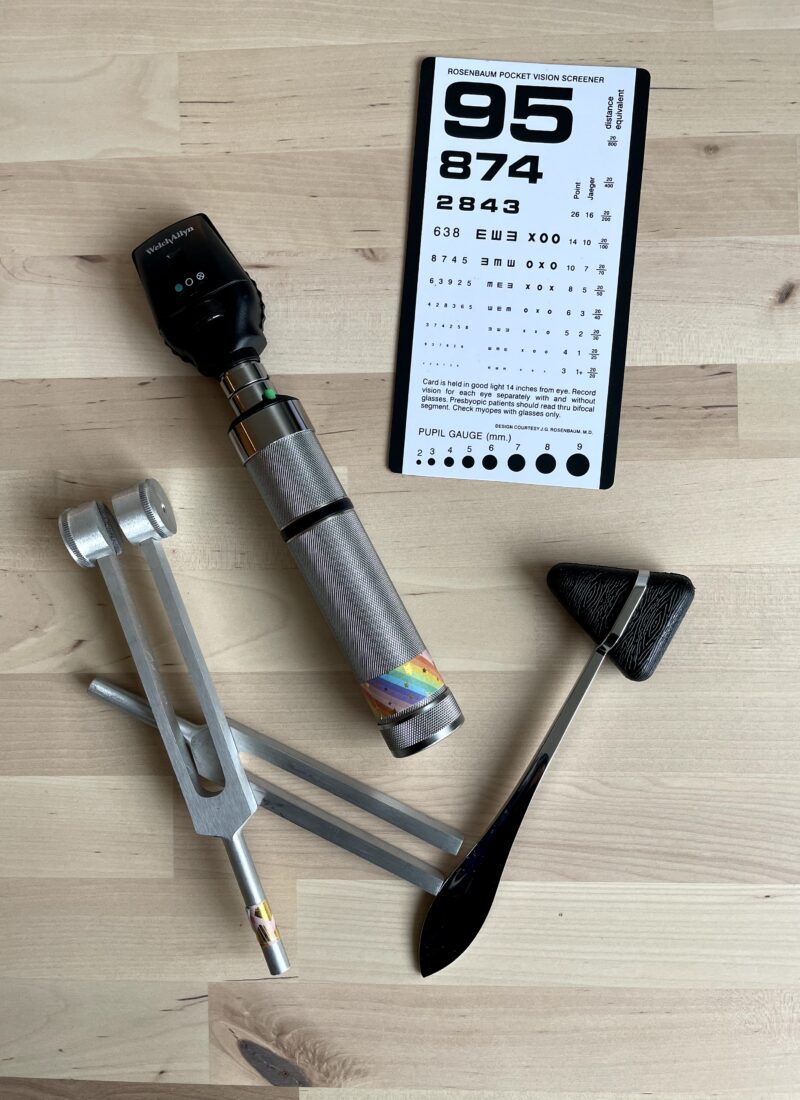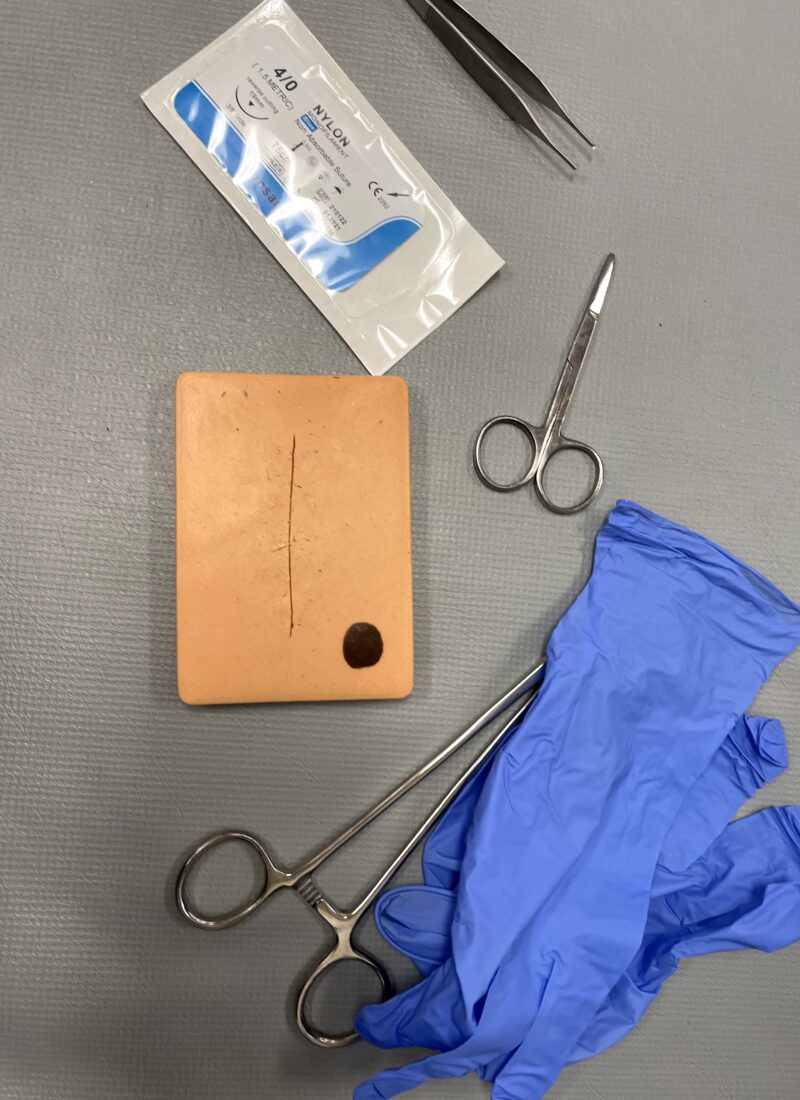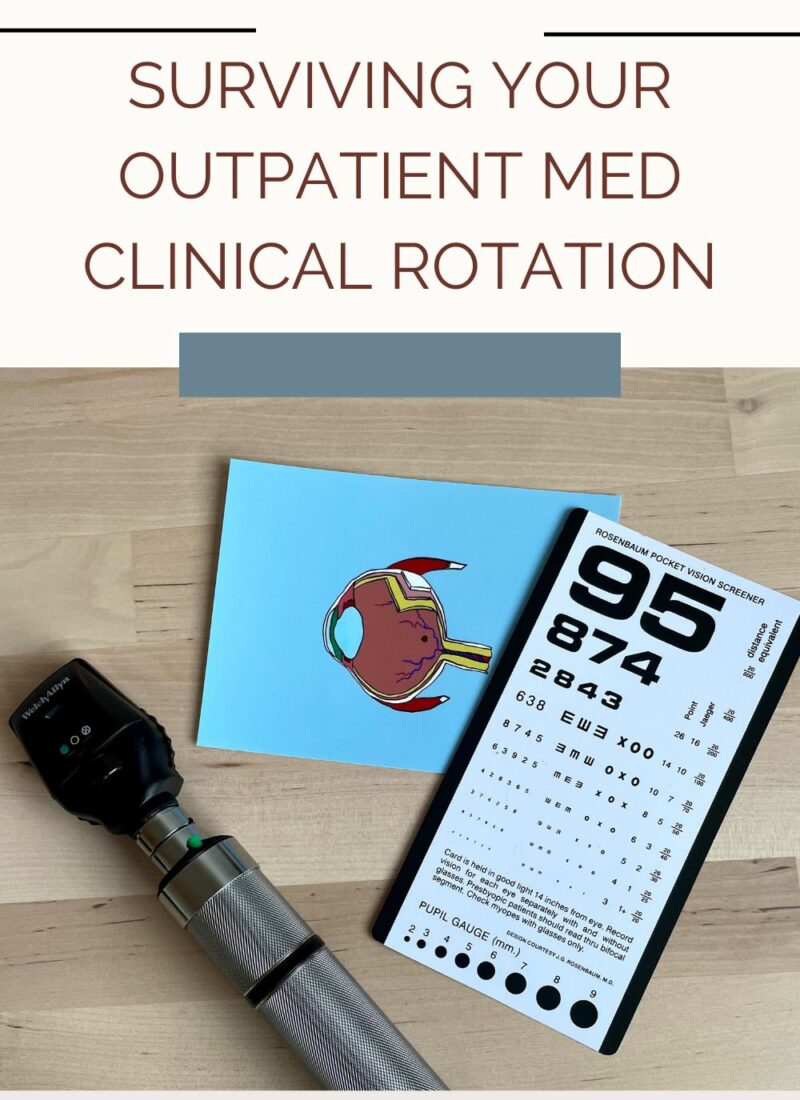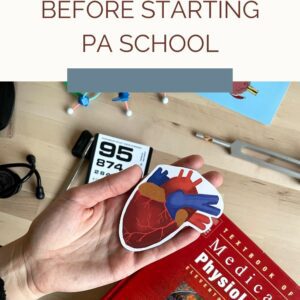Psychiatry or behavioral health rotations are required rotations for most (if not all) PA programs. There are many settings in which you could have a psychiatry rotation with some of the most common being inpatient, outpatient, or telemedicine.
***Note: Included in this post are links to some Amazon products. As an Amazon Associate I earn from qualifying purchases (at no extra cost to you), but don’t feel pressured to buy anything! I only include links to products that I have tried or would use myself.
Please note, this is just my personal experience and all opinions and recommendations on this blog are my own. My opinions and recommendations do not reflect the opinions or recommendations of my employers or schools. Nothing in this article is intended as medical advice. I share all this information to share information I wish I would have known prior to my experiences. Everything on the blog is just my opinion and experiences.
My psychiatry rotation experience
I enjoyed my psychiatry and behavioral health rotation way more than I thought I would. I had low expectations about psychiatry and this rotation completely changed my mind.
My psychiatry was at an inpatient floor in a local hospital. My preceptor was a PA with several years of experience in the psychiatry field and certifications in behavioral health.
Some Things I Learned on my Psychiatry Clinical Rotation
Taking a behavioral health or psychiatry history is different than your a primary care history and physical
I imagined that a behavioral health interview was different than a primary care history and physical, but I didn’t really learn how to do a psychiatric interview until my clinical rotation. I discuss more below about how to conduct a psychiatric interview, but overall the psychiatric interview includes a lot more social history and psychiatric history (both personal and familial).
It is important to establish rapport with the patient
While this is always important, regardless of specialty, it is extra essential in psychiatry. Unlike other areas of medicine where vitals or lab findings can indicate a diagnosis, in psychiatry the diagnosis is made mostly from what the patient tells you. Patients must be very vulnerable and trusting with you to share the information you need to know in order to help them. Establishing rapport and having empathy with the patient is the only way to do this and to help the patient feel cared for.
People go through more than you could possibly imagine
Life is truly not fair and the cards aren’t dealt the same. Patients will share with you extremely sensitive and personal information. You will see how the things that people go through affect their mental health. You will see people at their worst.
There is a lot of room for growth and learning in the field of psychiatry
The field of psychiatry is one of the newest fields of medicine and was not taken seriously until the mid-20th century. Due to this and lack of technology previously, a lot is not known about psychiatry. Psych drugs often work, but a lot of how they work is unknown. Neuroscience and what is known about the brain is constantly changing. I believe there is a large opportunity in the field of psychiatry for learning and discovering.
Psych medications can truly change the course of someone’s life
I had no clue how quickly and drastically psych medications can change a patient’s condition. A patient would come in with severe psychotic symptoms and a few days after starting treatment would seem like a completely different person and no longer have the psychotic symptoms. It was incredible to see how medication can improve a condition so significantly and rapidly.
There is a limit to what a medication can do
While medication does work, certain conditions require multifaceted treatment to see improvement.
Treatments affect all patients differently
While one medication may work really well for one patient, it may have a totally different effect on someone else. This was a reminder to me that treatment needs to be tailored specifically to each patient and that there’s not one thing that will fix all.
Everything affects one’s mental state
Peoples’ past, history, current living situation, family, and day-to-day life all affect their lives. It’s important to get a good history and be understanding with your patients.
Struggles in my Psychiatry Clinical Rotation
The content of psychiatry and hearing peoples’ stories is very heavy
There are many sad situations, depressing stories, and discussion of heavy topics which can be very emotionally taxing and overwhelming. It’s important to take care of your own mental health while on your psychiatry rotation. Some things that I did to help take care of my own mental health during the rotation was exercise after coming home, doing something relaxing (and non-school-related in the evening), and meditate.
Important things to know about psychiatry
The field of psychiatry is very wide and with many different schools of thought
The psychiatry settings (inpatient, outpatient, telemedicine, addiction medicine, etc) are all very different.
Keep in mind that your psychiatry rotation may be completely different than someone else in your PA program. Outpatient is very different than inpatient. A psychiatric clinic in an underserved area will be very different than a rehab facility in an affluent area. Regardless of your rotation setting, you need to learn and study conditions and medications that are used in any psychiatry setting. Your exams will likely test you on things that you will NOT see during your time on rotation.
There is so much that isn’t known in the field of psychiatry, neuroscience, and how behavioral health drugs affect the brain
When asking questions during the rotation, I would often get the answer “we do this because ….., but we don’t exactly know exactly why it works.” As stated above, psychiatry is a newer field compared to other areas of medicine, so there is a lot that is unknown. While this may be intimidating, it also gives an opportunity of learning that other specialties don’t have.
There are many legal factors affecting treatment (or lack there-of)
Especially in an inpatient psychiatric unit, patients may have legal implications of them being there. Also, the treatments and medications that patients are on may impact peoples’ legal status or what people can do after discharge. This is something to keep in mind.
Some psychiatric matters differ between states
With different laws in different states, some patients may not disclose certain information to you for fear of implications that could have for them legally. Also some treatment plans can differ between states, especially regarding controlled substances.
Medical conditions affect psychiatric conditions and vice versa
You may get focused on someone’s psychiatric history when interviewing them and discussing treatment plans, but always keep in mind medical conditions and rule out any medical causes for certain conditions. For example, hyperthyroidism should be ruled out with new onset anxiety and palpitations.
What I brought with me on the psychiatry rotation
- Hospital badge
- Small notebook
- 1 black pen
- 1 red pen
- 1 blank sheet of paper folded into a quarter for notes and questions from rounding
- The day’s census of patients with any notes about the patient (possible discharge, dx, etc)
- Small study guide to study during any down time
Tips for succeeding on your psychiatry rotation
Have an open mind (pun intended)
Don’t dismiss psychiatry before even starting. It’s not really like how it’s depicted in movies or TV. You can really make a difference in psychiatry.
Ask questions
Ask questions for anything you’re not sure about. Especially in the field of psychiatry, with so many different schools of thought and differences in diagnosis and treatment, learn why your preceptor is choosing the treatment or plan they did.
Learn or review the medications mechanism of action early in the rotation
The earlier in the rotation you understand the medications, what they’re doing, and their side effects, the more you will gain from your rotation. If you understand the diagnosis and medication chosen, you will be able to understand more about the patient and will learn more valuable information instead of struggling to tell the difference between Wellbutrin and Zoloft, etc.
Have empathy for your patients
Although you should always have empathy, as stated above, your patients are confiding in you deep personal information that they have likely not shared with many others. Respect them and give them the space they need to heal.
Slow down
Give your patients the time they deserve. While your other rotations (like surgery) you may have felt rushed and needed to ask only the essential questions, the psychiatry rotation is different and each patient warrants a larger chunk of time. Slow down and let them be heard.
The psychiatric patient interview
The psychiatric interview is much different than a typical medical history and physical. Your preceptor will likely have specific information they want you to ask, but essentially it boils down to the following areas.
Basic medical history
Get your basic past medical history including medications, illnesses, injuries, hospitalizations. Make sure to ask if they have had any head injuries or trauma.
Psych history
Deep dive to any past psychiatric history or diagnoses. If there is a previous psych history, get details of where, when, how long, hospitalizations, treatments tried, etc. If hospitalized in the past for a psych issue, get specifics of where and how long ago.
Family history
Family history specifically regarding psych diagnoses or conditions
Thorough social history
Do a very deep social history. Historical and current drugs, ETOH, caffeine, diet and specifics regarding each. Living situation, job history, education, who they live with, any trauma history
Chief complaint
“why are you here with us today?” And OLDCARTS. In psych, always ask about auditory or visual hallucinations, suicide or homicidal thoughts or ideation. If yes, always ask if they have a plan.
You can tailor the interview to the situation and patient. Be sure to ask your preceptor if there is any specific information they would like asked (especially if they are having you conduct an interview before you have seen them do an interview.)
Study resources for your Psychiatry Rotation Exam
- First Line Guide: I use this for every rotation and it has been the best resource
- Current Medical Diagnosis and Treatment: This is a textbook that our school recommended we use and I really like how it has all the information you could need on a condition. Personally, I think the organization is a little wonky, so I only use it if I don’t find what I need in First Line Guide.
- Lange Psychiatry Questions: I used Lange questions to assess my knowledge level about halfway through the rotation. I like how the question book gives a thorough explanation for each answer both correct and incorrect. You can learn a lot from just doing the questions and reading the explanations. I linked the newest version from Amazon here, but you can probably find a cheaper used version somewhere on the internet.
- Rosh Review: Rosh Review is definitely the best question bank for didactics that I have found. There are other companies, but I think that Rosh is definitely the most useful.
- EORE topics list: I am unsure if all programs use PAEA exams, but regardless if you do or don’t, it is good to look at the topics for each core rotation they list. The list will help you to gauge which topics you need to study. (EORE stands for End of Rotation Exam)
How I study for rotations
I primarily make a chart with all of the topics on the end of rotation exam and do practice questions. For psych, I recommend making a chart or study guide with all of the topics that will be your psychiatry exam and also a separate chart or study guide of the psychiatric medication classes.
More information on how I study can be found here: How to Study in PA School
Study plan
4 weeks:
Week 1: make and complete your study guide or chart
Week 2: review complete chart and add notes, underlines, or highlighter
Week 3: Lange Questions and review chart
Week 4: Rosh Questions and review chart
6 weeks:
Week 1: work on making chart or study guide
Week 2: finish making chart or study guide
Week 3: review complete chart and add notes, underlines, or highlighter
Week 4: Lange questions and review chart
Week 5: Lange questions and Rosh Review questions, review chart
Week 6: review chart and go over all missed Lange/Rosh questions
This concludes my recap on surviving (and crushing) your psychiatry clinical rotation in PA school! Let me know if you have any questions.
Thanks for reading!
-Liz





Leave a Reply